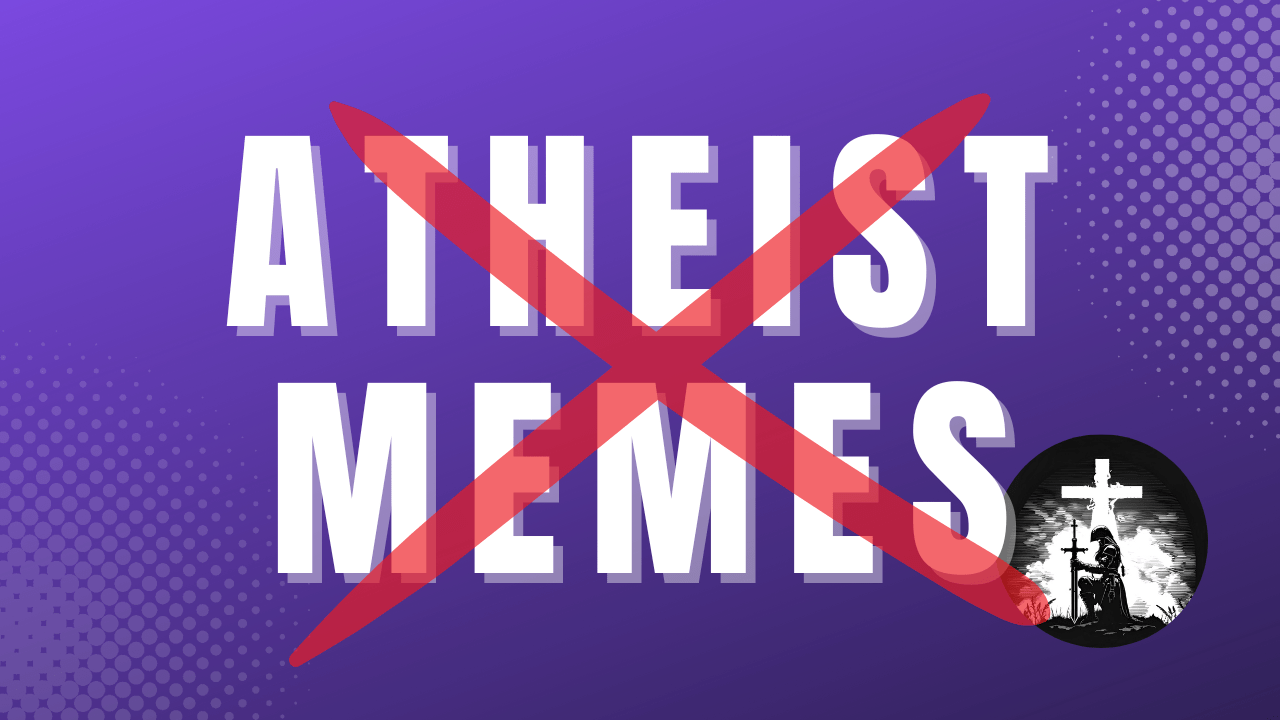Continuing with the saga “Refuting Atheist Memes,” we bring you a meme that attempts to portray God as an inconsistent being who repents and contradicts Himself. As Catholics, it’s crucial to understand the context to avoid falling into traps that the devil sets to shake our faith.
The meme states:

- Jesus says: “Murder is a sin; if you murder, God will send you to hell.”
- Wasn’t it God who drowned everyone in a flood?
It’s true that in the Old Testament, we find accounts of divine judgments and punishments where God allowed the destruction of entire cities or nations, including human beings. These actions may seem contradictory to the commandment “You shall not murder.” To understand this, we must consider the context and nature of the events described in the Old Testament.
Before the flood, humanity had fallen into great wickedness and moral corruption. Violence, murders, idolatry, and disobedience to God prevailed. Corruption had affected all aspects of human life, and thoughts and actions were evil. There are also mentions of possible sexual perversions. Faced with such depravity, God sent the flood as an act of judgment to purify the earth, allowing a new beginning with Noah and his family, who found favor in God’s eyes due to their obedience and faith.
So, God sent the flood as an act of judgment and purification on the earth. Genesis 6:5-7 describes the reason behind the flood:
“When the LORD saw how great the wickedness of human beings was on earth, and how every desire that their heart conceived was always nothing but evil, the LORD regretted making human beings on the earth, and his heart was grieved. So the LORD said: ‘I will wipe out from the earth the human beings I have created, and not only the human beings, but also the animals and the crawling things and the birds of the air, for I regret that I made them.'”
But wait… Does God repent? How is that possible if God is immutable?
It’s important to understand that the “repentance” of God is a complex concept that must be interpreted in biblical context. God is eternal, perfect, and sovereign, and His actions are always in line with His just and loving character. The use of the word “repent” in the Bible is a way to express how God responds to the free will and actions of human beings, but it doesn’t imply that He changes in His divine nature.
God, upon seeing the depravity and wickedness in the human heart, decided to purify the earth through a flood that would destroy all living creatures, except for Noah and his family, who were considered righteous and were instructed to build an ark to preserve life.
The flood served as a manifestation of divine judgment against evil, but also as an act of mercy to protect and provide a chance for salvation to those who trusted in God and obeyed His commandments. After the flood, God established a covenant with Noah and his descendants, promising never to destroy the earth with a flood again, symbolized by the rainbow as a sign of this promise (Genesis 9:8-17).
Therefore, God, in His justice, eliminates the wicked. It’s an act of love similar to a judge sentencing a serial killer to life in prison. Pretending that God turns a blind eye to iniquity is equivalent to protesting because the president of El Salvador sent gang members who were terrorizing innocent and righteous civilians to prison.
Now, regarding the commandment “You shall not murder,” it focuses on the preservation of human life and prohibits intentional and malicious homicide. God values human life, as each individual is created in His image (Genesis 1:27). Therefore, this prohibition expresses the value and sanctity God attributes to innocent human life.
Hence, the God who eliminates the wicked is not inconsistent with the God who forbids killing an innocent person. The wicked have chosen to disobey God; therefore, they will be eliminated. A just God acts in that manner.

